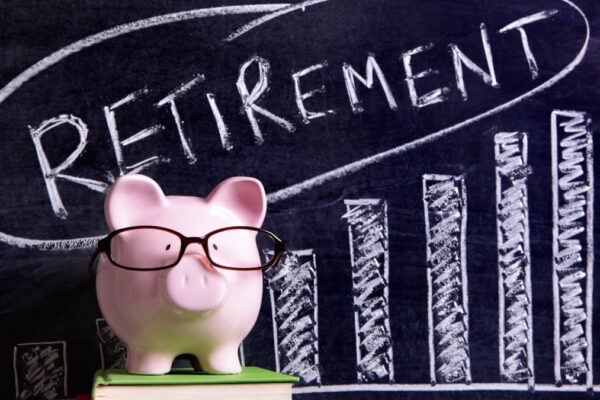How much super do I need? Cheapest super and pension funds, Pension fund returns, SMSF checklists, Introduction to aged care videos, Buying a commercial property through your SMSF
Highlights of this bumper February 2020 edition of the SuperGuide Premium newsletter include:
- HOW MUCH SUPER DO I NEED? Barbara Drury looks at what you need to consider when planning when you might retire and estimating how much super you may need. We have also updated our series of articles (and reckoners) with the latest figures, including how much super you need to retire on $40,000, $50,000, $60,000, $80,000 or $100,000 a year, and what retirement income $500,000, $750,000, $1 million, $1.6 million, $2 million and $3.2 million in super can give you in retirement.
- SAVING FOR RETIREMENT: We look at ways you can also save for retirement outside super, and how where you choose to retire is a critical factor in how much you spend in retirement.
- INTRODUCTION TO AGED CARE: In a series of 3 video interviews, Bina Brown gives an introduction to aged care – including mistakes to avoid, ways to educate yourself and how home care packages and residential aged care work.
- SMSF CHECKLISTS: Penny Pryor has developed 4 handy SMSF checklists for trustees – covering annual admin, an investment strategy health check, for trustee meeting events, and when starting an SMSF pension.
- FUND PERFORMANCE: Pension funds had a great year in 2019, and in a separate video interview Ian Fryer from Chant West gives tips on choosing a pension fund. We also look at what drives the strong performance from the 5 largest not-for profit funds, as well as explore the increasing demand for sustainable investments.
SUPERANNUATION
Super funds with the lowest fees
Discover the cheapest super funds overall, funds with the lowest fees for each investment category, as well the most expensive super funds.
Super news for February 2020
Super funds stay safe in short-term volatility, NAB hit with new class action, no increase in $1.6m transfer balance cap, older Australians resist home modifications and more Australian seniors would downsize if they could.
Divorce and superannuation: How it works
Super is an increasingly important marital asset and one that should not be overlooked when couples divorce.
How do tax-deductible superannuation contributions work?
Making a tax-deductible super contribution can be a great way to boost your retirement savings. Find out whether they could be the right strategy for you.
HOW MUCH SUPER DO I NEED?
How much super do I need to retire?
The good news is you probably don’t need anywhere near the $1 million often touted to retire in the style to which you have become accustomed. Here’s how to set your savings target.
See also our articles on how much super you need for a particular income in retirement:
- How much super do I need to retire on $40,000 a year?
- How much super do I need to retire on $50,000 a year?
- How much super do I need to retire on $60,000 a year?
- How much super do I need to retire on $80,000 a year?
- How much super do I need to retire on $100,000 a year?
- Plus our Income from super Reckoner.
We also have articles on how much retirement income particular super balances can generate
- Is $500,000 in super enough to retire on?
- Is $750,000 in super enough to retire on?
- Is $1 million in super enough to retire on?
- Is $1.6 million in super enough to retire on?
- Is $2 million in super enough to retire on?
- Is $3.2 million in super enough for a couple to retire on?
- Plus our Super to income Reckoner.
SUPER PERFORMANCE
Pension fund performance to June 2025
Pension fund members enjoyed robust returns in the latest financial year, with many retirees growing their balance even after making withdrawals.
Super fund performance: Monthly returns to November 2025
After a shaky November, super funds are still on course to deliver healthy returns for the 2025 calendar year.
SMSFs
How to buy a commercial property and lease it through your SMSF
Many restrictions that apply to the purchase of property via an SMSF don’t apply to commercial property. Here’s how it’s done.
Non-arm’s length expenditure (NALE) rules for SMSFs
Don’t know your NALE from your NALI? Failure to attend to both can lead to some gnarly tax outcomes.
SMSF annual admin checklist
Use this handy printable checklist to make sure you’re on top of your SMSF admin requirements.
SMSF investment strategy health checklist
If you haven’t looked at your investment strategy in a while it’s probably time for a check-up because slip-ups can be costly.
Starting an SMSF pension checklist
Running your own super fund offers greater control and flexibility when it comes to paying pensions, but there are still regulatory hoops to jump through.
Retirement planning
Location the missing ingredient in retirement planning
When you start planning your retirement, where you live can be just as important as your super balance and have an even bigger impact on your quality of life.
5 strategies to help fix your total super balance problem
If a high super balance is limiting your ability to get more into the tax effective super environment, there are ways to reduce your balance and maximise contributions at the same time.
Saving for retirement outside super
Super is undoubtedly the most tax effective vehicle for retirement savings, but there are plenty of reasons why you might hold investments outside super to augment your retirement income.
IN RETIREMENT
Introduction to aged care
In this video interview Bina Brown, Director of Third Age Matters, gives an introduction into aged care, including common mistakes people make, ways to educate yourself about aged care and other tips for those first thinking about aged care.
How does residential aged care work?
Bina Brown explains how residential aged care works, what are the typical wait times and costs, and what you should consider when choosing a residential aged care facility.
How to choose a super fund for your pension
Selecting a super pension account could be one of the most important retirement planning decisions you make. Our seven tips will give you the confidence you need to make the most of your hard-earned savings.





